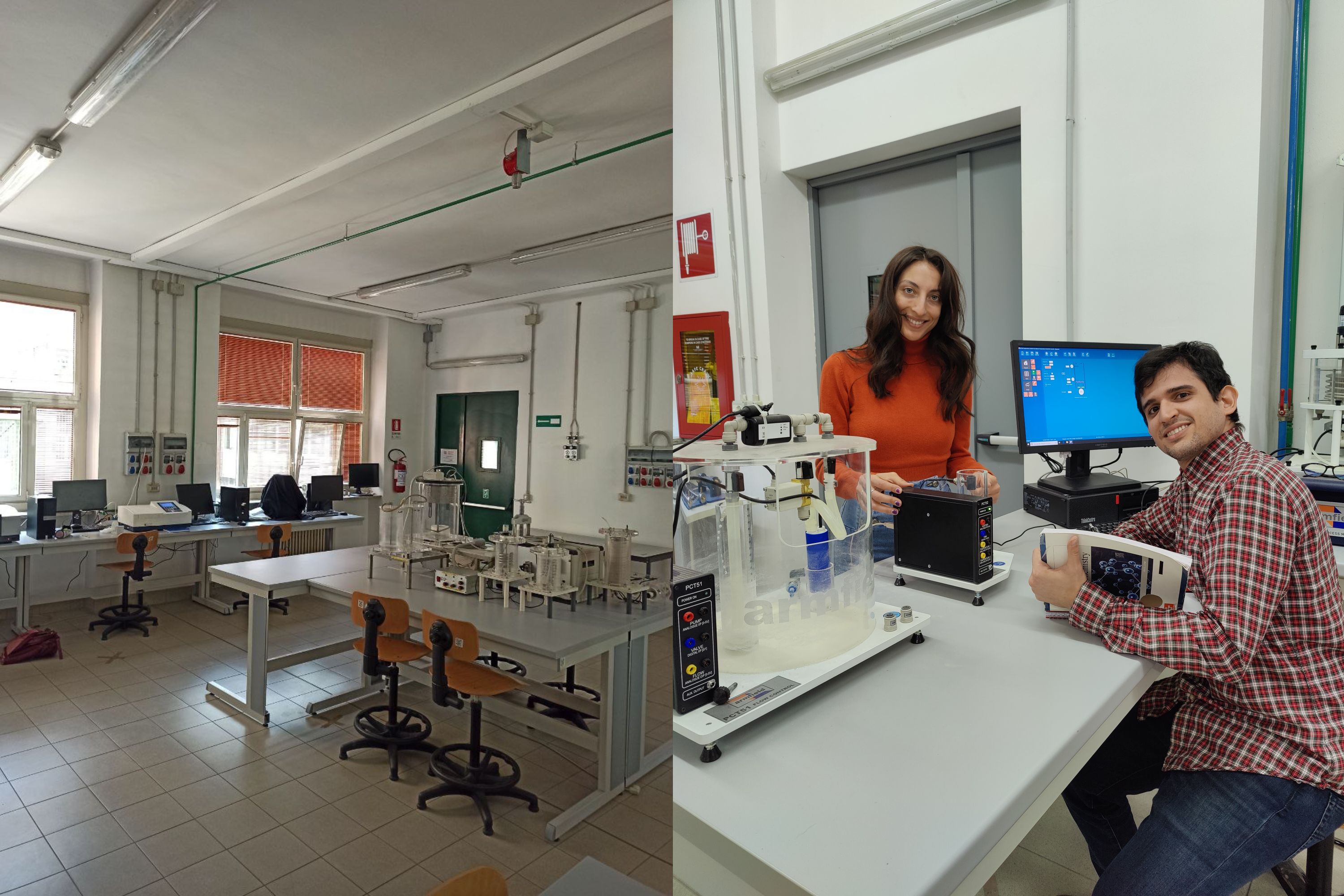At the Polytechnic University of Turin, and particularly in the Chemical Engineering course of study, learning takes place in many ways beyond the traditional lectures, which nevertheless remain at the center of learning due to the face-to-face relationship between teacher and student.
To enrich this classical learning experience, there are many other activities in which students can be involved.
The Challenges are educational activities organized by CLIK – Contamination Lab and Innovation Kitchen, an experimental teaching laboratory promoted by the Interdepartmental Laboratory for Technology Transfer (LabTT).
CLIK proposes a new educational approach to promote cross-pollination (Contamination Lab) between state-of-the-art research, innovative ideas from students, different backgrounds, cutting-edge equipment, planning, and urban and territorial economics (Innovation Kitchen).
The Challenges are aimed at learning soft skills through project activities carried out in multidisciplinary teams for problem solving.
They allow students to earn 8 curricular or extra-curricular CFU (credits) depending on the relevance of the topic to the course of study.
For more information, please visit the dedicated university webpage, which you can find at this link.
In the Chemical Engineering degrees, the students will participate in many hands-on laboratory activities to practice and better understand basic and applied chemistry, polymeric materials, industrial and analytical chemistry, and how to deal with the more commonly investigated problems in process engineering.
These activities are designed to put into practice the theoretical notions learned in class, by working in team with your colleagues and learning how to write technical reports, just how it is usually done when working in a company or in a research environment.
The Chemical Engineering Teaching Lab hosts many practice activities and experiments to support the teaching in many classes, such as Reattori chimici (Chemical Reactors), Impianti Chimici (Process Design), Chimica Industriale (Industrial Chemistry), Controllo e strumentazione di processo (Process control and instrumentation), and Controllo Avanzato (Advanced Process Control).

In addition to practical laboratory activities, students undertake group activities typical of a process engineer's work.
In the class Fundamentals of Chemical Process Development, project groups (with a project leader chosen by the students themselves) develop their own project from the given specifications, choosing the best process scheme, optimizing it economically, and choosing among various alternatives for material recovery and energy integration. The exercises involve the use of professional process simulators (Aspen and Aspen Energy).
In the class Innovative Process Design, teams of students approach different processes starting from patents, academic and industrial research. They tackle highly innovative processes not yet on the market, characterized by TRL (Technological Readiness Level) levels from 4 to 7, that is, processes far from complete commercialization, which represent an excellent testing ground for learning how to deal with ever-new chemical engineering problems. At the end of the course, for each of the processes considered, not only the basic engineering documentation is produced, but also an economic analysis of the entire process.
Group activities are present in most of the Chemical Engineering teachings, thus exposing students to the entire spectrum of the most relevant industrial activities, and preparing them in the best way for the many possible roles that a chemical and process engineer can play.